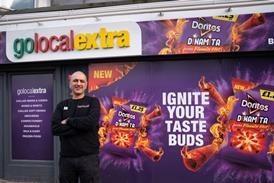Labour leader Ed Miliband has pledged to increase the National Minimum Wage significantly over the course of the next Parliament to bring it closer to average earnings.
Miliband will today back radical new proposals aimed at “establishing a clear link between the level of the minimum wage and the scale of wages paid to other workers in our economy”.
Speaking at the launch of a new independent Report on Low Pay, the Labour leader will say: “Britain is still one of the lowest paid countries among the world’s advanced economies. So we have to go further, we have to write the next chapter in the history of Labour’s battle to make work pay.
“It is time to raise our sights again because Britain can do better than this. The next Labour government will restore the link between hard work and building a decent life for your family.”
The report, by Alan Buckle, the former deputy chairman of KPMG International, also recommends encouraging employers to pay the Living Wage by requiring them to disclose numbers earning less than the rate, and offering temporary incentives to raise low pay.
It also sets out a new framework for the Low Pay Commission, with a strengthened role in tackling poverty and raising productivity across the UK.
But independent retailers have repeatedly warned that hikes in the minimum wage threaten staff hours and investment.
Sanjeev Vadhera, director of North East Convenience Stores, which employs some 300 people across its 22 stores, said he would potentially have to cut hours and reduce investment as a result of the forthcoming 3% rise to £6.50 this autumn.
Association of Convenience Stores chief executive, James Lowman, said: “We support the National Minimum Wage and the protection it provides to workers, but forcing large annual hikes in the minimum wage rate, in the way that the Labour Party proposals suggest, will threaten investment and prevent local shops from creating jobs.
“We firmly believe that the Low Pay Commission should be left to independently evaluate, monitor and recommend future wage rates. Indexation of the National Minimum Wage to average earnings would not account for fluctuations in the economy or employment market.
“The success of the National Minimum Wage over the last 15 years is based on ensuring that politics is removed from how rates are set. It is vital that this does not change.”











![WG-4003[58]](https://d2dyh47stel7w4.cloudfront.net/Pictures/274x183/4/5/1/353451_wg400358_6083.jpg)





2 Readers' comments